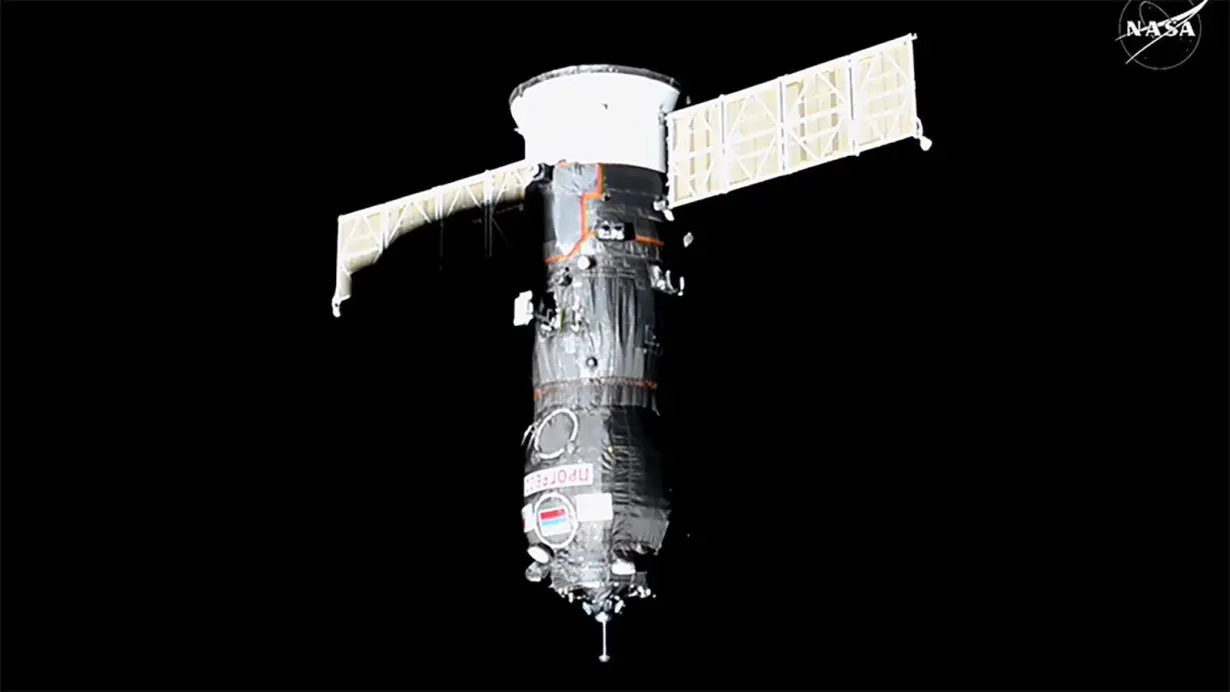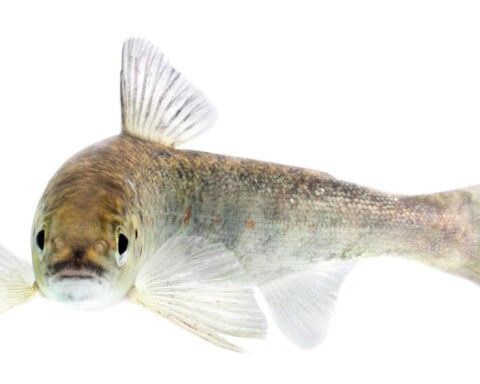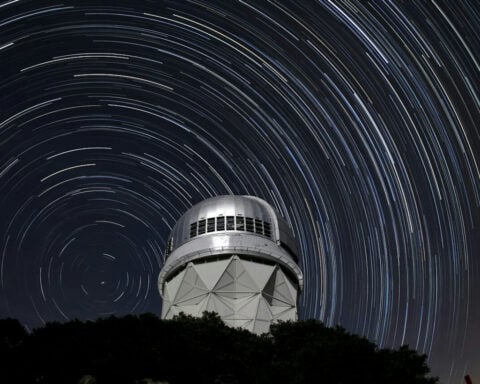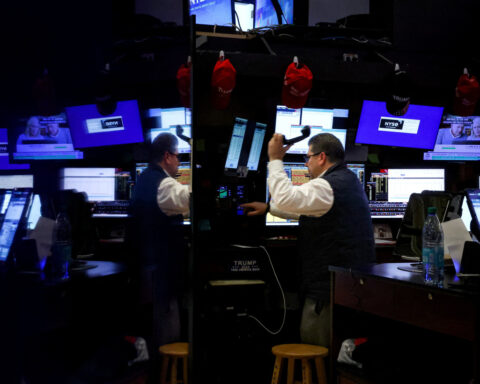(CNN) — Russian cosmonauts on the International Space Station were forced to briefly lock down a segment of the orbiting laboratory this weekend after finding an “unusual odor” emanating from a visiting cargo spacecraft called Progress 90, NASA said Sunday.
The odor — along with “droplets” the cosmonauts, or Russian astronauts, said they observed — likely resulted from “outgassing from materials inside the (Russian) Progress spacecraft,” NASA said in a statement to CNN Monday afternoon.
“There are no concerns for the crew,” according to Kelly O. Humphries, the news chief at NASA’s Johnson Space Center in Houston.
The uncrewed Progress capsule — which can carry science experiments, propellant, food and other supplies to the ISS — runs on a fuel called unsymmetric-dimethylhydrazine and an oxidizer called nitrogen tetroxide. Both are highly toxic to humans. But Humphries confirmed propellants do not appear to be the cause of the issue.
“Outgassing” is a phenomenon that can occur as manmade objects leave the protective bubble of Earth’s atmosphere and enter the radiation-riddled environment of space, where temperatures can also range from 250 to minus 250 degrees Fahrenheit (121 to minus 158 degrees Celsius).
The potentially outgassing “materials” NASA referred to were inside the Progress capsule did not involve fuel, Humphries said via email.
“For any detailed information on what caused the unusual odor, please contact (Russian space agency) Roscosmos,” Humphries said.
Roscosmos did not respond to an emailed request for comment.
Continuing saga on the ISS
NASA said in its Sunday statement that, after the Russian cosmonauts noticed the odor, they shut down the hatch that connects the 16-foot-long and 8.4-foot-wide Poisk module to the rest of the space station.
Then, flight controllers on the ground “activated air scrubbing equipment as part of normal procedures, indicating that the odor likely was outgassing from materials inside the Progress spacecraft,” according to NASA’s statement to CNN.
“The crew reported the odor dissipated quickly and cargo transfer operations are proceeding on schedule,” the statement noted, indicating that the cosmonauts were able to access the supplies stowed on board the Progress vehicle, despite the earlier reported smell.
In a separate statement posted to social media on Sunday, NASA also noted that “air scrubbers and contaminant sensors” confirmed that “air quality inside the space station (was) at normal levels.”
The Progress vehicle — one in a long series of resupply ships that have visited both the Russian and NASA-controlled portions of the space station — arrived at the ISS after launching from the Baikonur Cosmodrome in Kazakhstan on November 21. It carried “nearly three tons of food, fuel, and supplies,” according to NASA.
While the unexpected odor and temporary shutdown of the Poisk hatch appears to have been a brief and isolated incident, it adds to a years-long saga related to a separate Russian-controlled module on the ISS, called Zvezda.
That segment has been mostly closed because of a slow air leak. Cosmonauts only enter the module to unload cargo from visiting spacecraft, according to NASA.
The space station has hosted rotating crews of cosmonauts and astronauts — hailing from more than 20 countries — since the year 2000 in separate but connected Russian and US sections.
NASA hopes to continue operating the ISS with its five partner agencies through at least 2030. In addition to Roscosmos, those partners include the Canadian Space Agency, European Space Agency and Japan Aerospace Exploration Agency.
Russian officials, however, have not committed to the space station beyond 2028 and likely will not give firm answers on Roscosmos’ involvement after that time frame until at least 2025, according to a recent report from NASA’s Office of the Inspector General.
The-CNN-Wire
™ & © 2024 Cable News Network, Inc., a Warner Bros. Discovery Company. All rights reserved.

 Trump has begun another trade war. Here's a timeline of how we got here
Trump has begun another trade war. Here's a timeline of how we got here
 Canada's leader laments lost friendship with US in town that sheltered stranded Americans after 9/11
Canada's leader laments lost friendship with US in town that sheltered stranded Americans after 9/11
 Chinese EV giant BYD's fourth-quarter profit leaps 73%
Chinese EV giant BYD's fourth-quarter profit leaps 73%
 You're an American in another land? Prepare to talk about the why and how of Trump 2.0
You're an American in another land? Prepare to talk about the why and how of Trump 2.0
 Chalk talk: Star power, top teams and No. 5 seeds headline the women's March Madness Sweet 16
Chalk talk: Star power, top teams and No. 5 seeds headline the women's March Madness Sweet 16
 Purdue returns to Sweet 16 with 76-62 win over McNeese in March Madness
Purdue returns to Sweet 16 with 76-62 win over McNeese in March Madness







